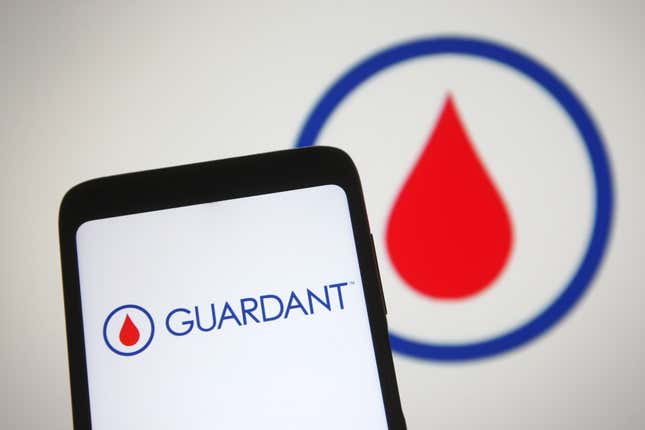
In This Story
People who dread the thought of a colonoscopy may soon get a less invasive option to screen for colon and other rectal cancers.
A U.S. Food and Drug Administration (FDA) advisory committee is meeting today to review a new blood test by the biotech company Guardant Health that checks for colorectal cancers.
Trading of the company’s stock on the Nasdaq has been temporarily paused as the committee reviews the company’s premarket approval application for its Shield test.
After today’s meeting, the FDA’s Molecular and Clinical Genetics Panel of the Medical Devices Advisory Committee will give the agency its non-binding recommendation.
If approved by the agency, Shield would become the first approved blood test for colorectal cancer that would qualify for Medicare reimbursement — giving more patients access to the test.
The FDA first approved a similar test by Epigenomics in 2016, however, this test — now known has ColoHelth — did not meet the U.S. Centers for Medicare and Medicaid Services minimum sensitivity threshold of 74%. Sensitivity is the test’s accuracy at identifying people with a disease.
Guardant Health’s Shield test demonstrated 83% sensitivity in detecting people with colorectal cancers and 88% sensitivity in detecting stage I, II, and III colorectal cancers, according to a clinical trial.
The test works by looking for cancer signals from DNA shed by tumors in the blood stream.
The company says the test is meant to be complementary and not a replacement to current recommended screening methods like colonoscopies.
Still, colorectal cancer is the second deadliest cancer in the United States, followed by lung cancer. Despite that, one in three people in the U.S. that are eligible for screenings do not get them, according to the Colorectal Cancer Alliance.
“Colorectal cancer is highly treatable if caught in the early stages, yet more than 50 million people in the U.S. are still not completing their recommended screening with the methods available today,” said Chris Evans, president of the Colon Cancer Coalition, in statement about the results of Shield’s clinical trials. “This publication gets us one step closer to having an additional option to offer patients – one that is both convenient and accessible—and will help us close the screening gap.”